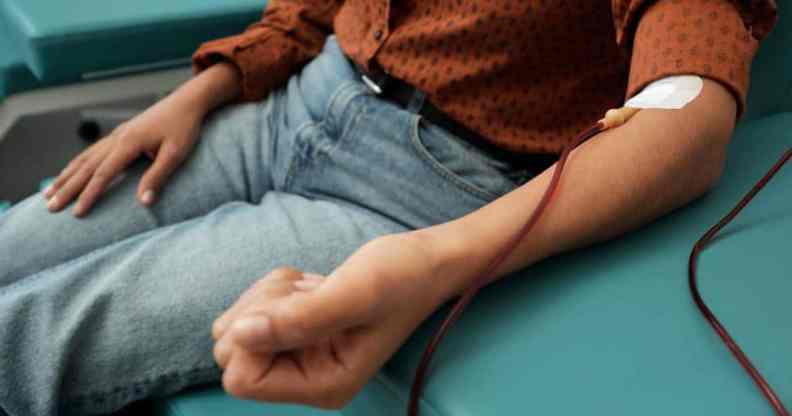Austria finally lifts archaic, homophobic ban on queer men donating blood

Austria’s health minister said the government is “putting end to discrimination from another age” by easing blood donation restrictions for LGBTQ+ people. (Envato Elements)
Austria is lowering its archaic restrictions on blood donations from queer men and others within the LGBTQ+ community.
Green Party health minister Johannes Rauch announced on Friday (20 May) that Austria’s new approach to blood donation will be based on the individual donor’s sexual behaviours rather than blanket bans on certain communities.
Under the new guidance, any individual who has had sex with three different partners in the last three months will be prevented from giving blood for three months – regardless of their gender identity or sexual orientation.
Rauch said in a statement that the government is “putting an end to discrimination from another age” by lifting the restrictions that prevented members of the LGBTQ+ community from giving blood, AFP reported.
“If someone wants to help by donating, there is no reason why they should be prevented from doing so because of their sexual orientation or gender identity,” Rauch added.
Under the previous law, trans and non-binary people were banned from donating blood. Gay, bisexual and queer men in Austria were prevented from donating blood if they’d had sex in the past 12 months.
Rach said the new guidance will go into force this autumn and will be evaluated by experts after two years, the Australian Associated Press reported.
But a government spokesman told AFP that the change in blood donation regulations will come into effect “this summer”, meaning it could be just a few weeks or months.
Ann-Sophie Otte, head of HOSI Vienna, said that “years of pressure” from the LGBTQ+ community for “non-discriminatory blood donation” has finally “worked”, according to an auto-translated report by Mannschaft.
Otte said the group had “just this week, as part of IDAHOBIT – the International Day Against Homophobia, Biphobia, Transphobia and Interphobia” – put “pressure” on the government to “finally come to a regulation” that didn’t outright ban queer men and trans people from donating blood.
Andrea Brunner, managing director of AIDS-Hilfe Wien, said organisations have “long” drawn very clear attention to the fact that blood donation regulation must focus on the “individual risk behaviour” of the donor instead of excluding people “because of their sexual orientation or identity”.
“If this succeeds now with the regulation, it will be an important step,” Brunner added.
The move puts Austria in line with many other countries – including the UK, France, Italy, Hungary, Greece and Canada – that have eased or outright eliminated their anti-LGBTQ+ blood donation bans in recent years.

